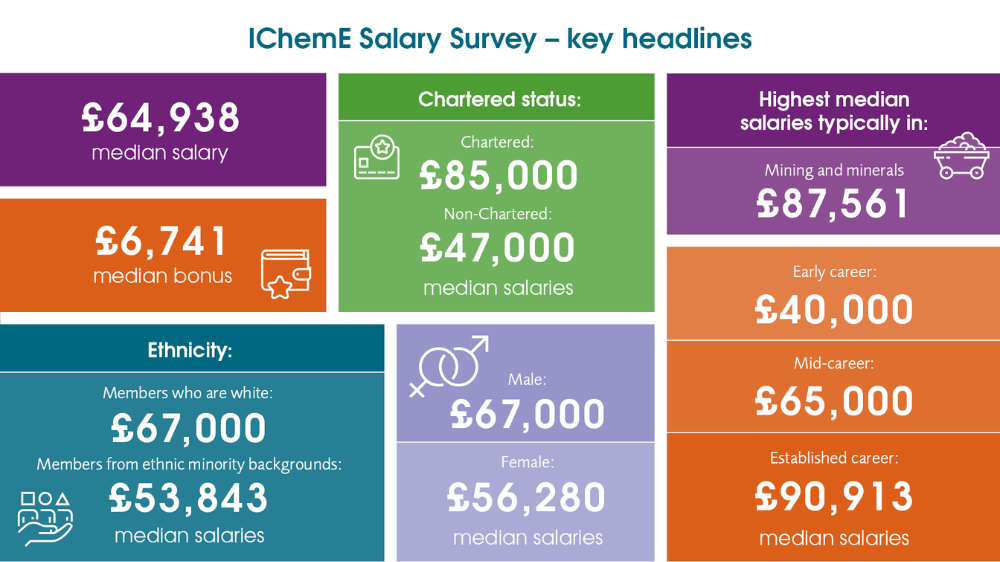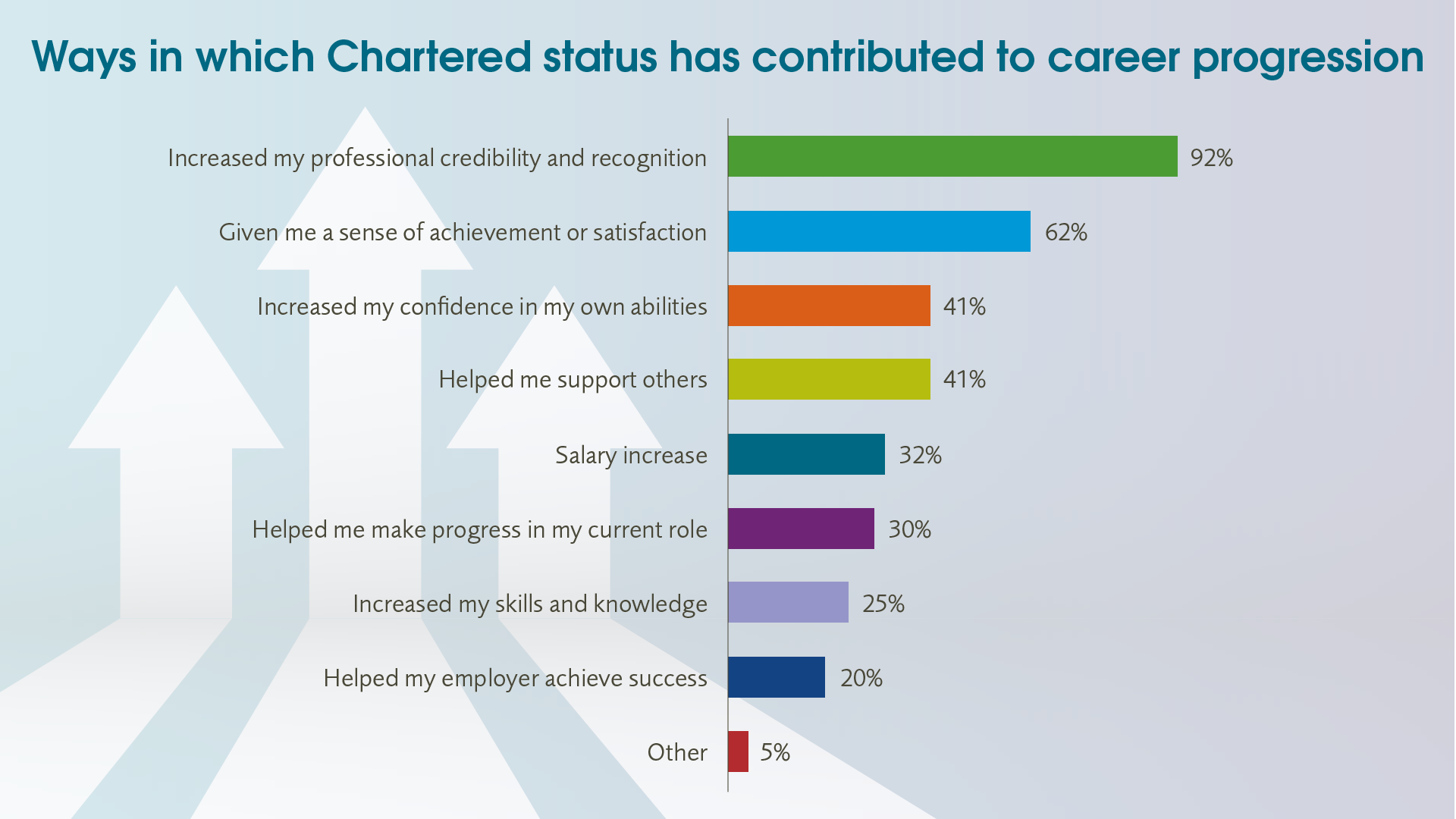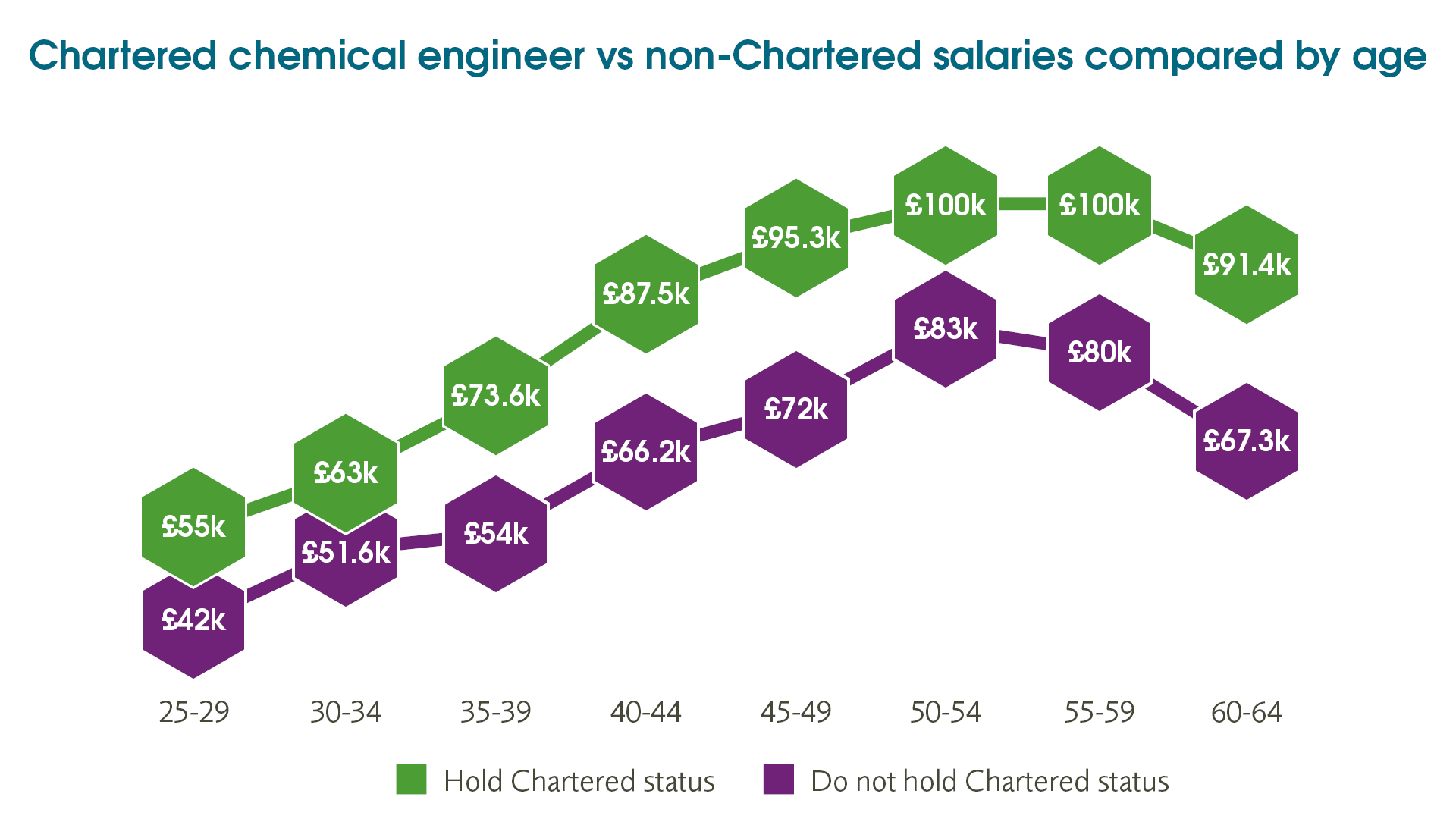IChemE’s new survey identifies Chartered status as key salary determinant

8th April 2024
An employment survey carried out by IChemE has identified Chartered status as the most influential factor on median salary.
2,402 participants completed the online salary survey in autumn 2023, the first to be conducted by IChemE since 2018. 54% of participants were Chartered Chemical Engineers (MIChemE). The survey was open to all IChemE members irrespective of their location, but the vast majority of respondents were from the UK.
- Chartered status was the key factor impacting upon salaries, with Chartered engineers earning an annual median salary of £85,000 compared with non-Chartered engineers earning £47,000
- 58% of respondents said Chartered status had positively impacted their career progression
- 92% of respondents stated that Chartered status increased their professional credibility and recognition
- Overall median salaries are up by an impressive 20% compared with the 2018 survey
- 63% of members were very or quite satisfied with their current salary
- IChemE has updated its popular Salary Calculator tool with this latest data.

It was clear that achieving Chartered status provides a variety of benefits to IChemE members’ careers in addition to the positive salary impact. Chartered Chemical Engineers highlighted increased professional credibility and recognition, a sense of achievement or satisfaction, increased confidence in their own abilities, and giving support to others, as key factors that had contributed to their career progression.
Leadership was the most important ‘soft’ employability skill that respondents indicated a need to develop. Networking, project management and influencing skills were also rated as important. In respect of technical and engineering skills: development process safety, hydrogen energy, process design, process automation and process plant commissioning were recognised as being required for career development. The report provides more detail around skill development based upon career stage and sector.
There was no pay gap indicated for men and women up until the age of 34; however, a gender pay gap emerged from age 35 onwards, with the median salary for men rising to almost £11,000 more than that for women. Disappointingly, this figure is similar to that reported in 2018.

IChemE Associate Director of Marketing and Communications Steve Brading said: “I am delighted to welcome the findings of the 2024 IChemE salary survey. This key piece of industry research has been a valuable tool offered by IChemE to its members for many decades, and I know our members really appreciate the unique insight it gives them.
“The 2024 survey will be of particular interest to those chemical and process engineers who are planning the next stage of their career. The survey clearly evidences enormously positive benefits to becoming a Chartered Chemical Engineer, not only in terms of salary - although that differential is striking - but also, more holistically across the professional sphere. Promotion prospects, credibility and recognition, increased confidence and an enhanced sense of achievement are all strongly highlighted.”

IChemE members can access the full report and IChemE’s salary calculator tool by logging onto MyIChemE. The salary calculator tool allows individuals to look at potential salary levels based upon sector, age and level of responsibility.
Links
Notes
The IChemE salary survey excluded student and retired members. IChemE members based in individual countries outside of the UK formed too small a sample size, but comparisons comparing UK-based members and those based abroad have been made where relevant.
Contact
For more information please contact:
Ann Baylis, Communications Executive and PR Lead, IChemE
t: +44 (0) 1788 534477
e: abaylis@icheme.org
Dan Owens, Communications Executive, IChemE
t: +44 (0) 1788 534458
e: dowens@icheme.org
What is chemical engineering?
Chemical, biochemical and process engineering is the application of science, mathematics and economics in the process of turning raw materials into everyday, and more specialist, products. Professional chemical engineers design, construct and manage process operations all over the world. Energy, pharmaceuticals, food and drink, synthetic fibres and clean drinking water are just some of the industry sectors and products where chemical engineering plays a central role.
IChemE
The Institution of Chemical Engineers (IChemE) advances chemical engineering's contribution for the benefit of society. We facilitate the development of chemical engineering professionals and provide connections to a powerful network of around 30,000 members in more than 100 countries.
We support our members in applying their expertise and experience to make an influential contribution to solving major global challenges, and are the only organisation permitted to award Chartered Chemical Engineer status and Professional Process Safety Engineer registration.